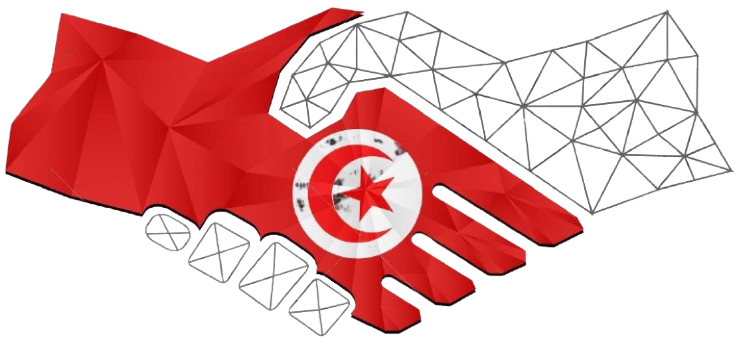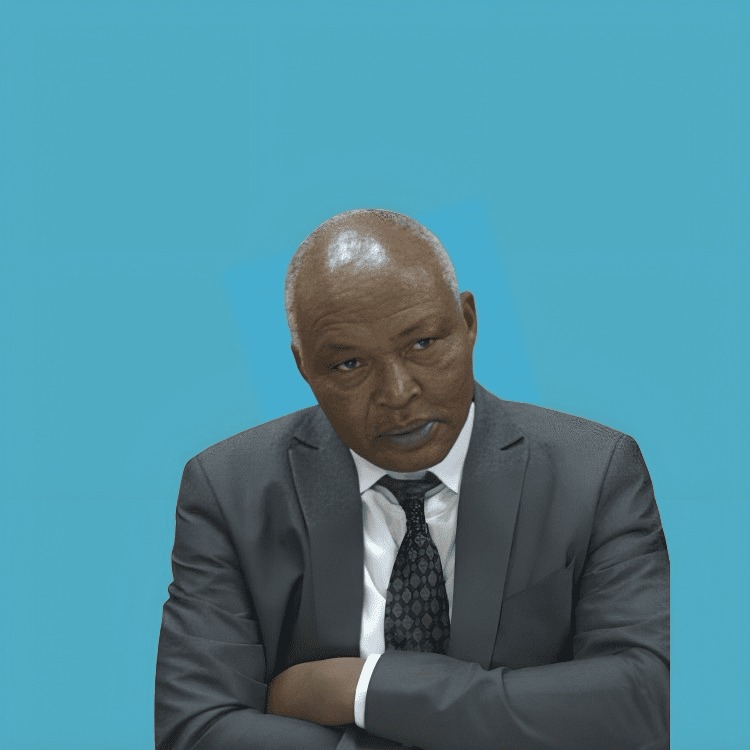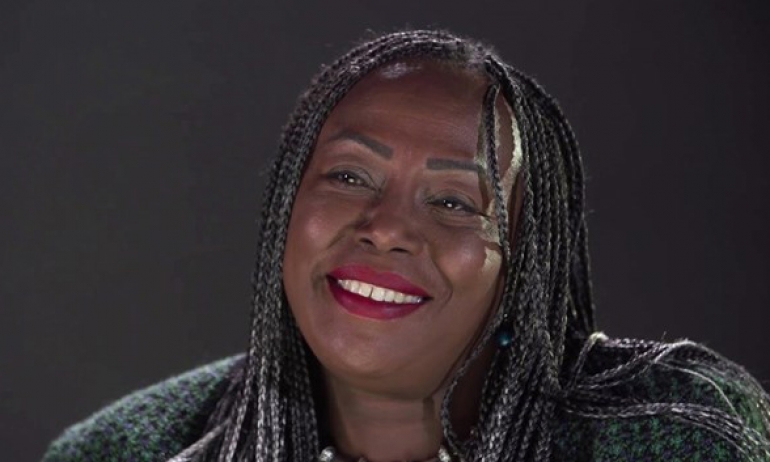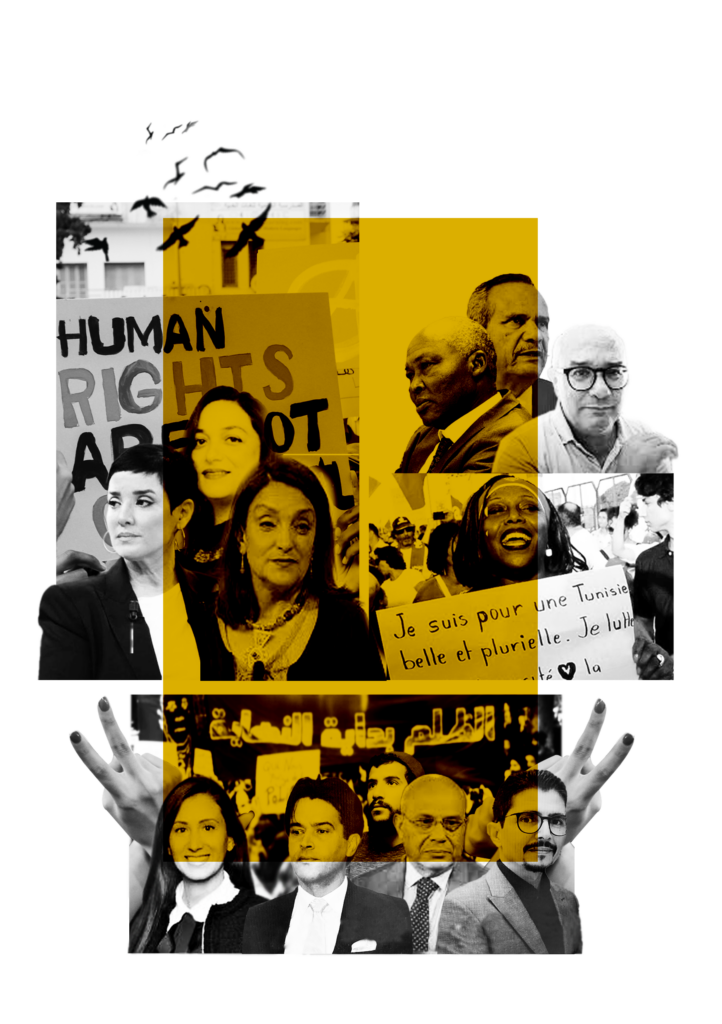Detained since
Sherifa Riahi, what was she imprisoned for?
Why are her babies being punished?
These papers were drafted by Ms. Riahi’s family and friends as a direct source of information regarding her detention pending investigation in Case No. 1705/09 and to answer the questions of many interested individuals who see this case as a subject of understanding.
Faced with the proliferation of lies and distortions that negatively affect the course of justice, all those close to Cherifa Riahi believe that it is necessary to combat shadows and enlighten public opinion about the truth about her personality, her professional and civil path, and her previous work and activities, so that everyone can understand the values she was raised with and has always defended wherever she is.
The family emphasizes that Sharifa Riahi has never shunned justice, is not a criminal or violent person, and is a mother of two infant children who desperately needs her. They demand that she be released and continue to be investigated at liberty in the best interest of the children.
Family and friends can be contacted at
mailing address
amis.famille.sherifa@gmail.com
Key dates related to the case
May 07, : (5 p.m.) : Sharifa Riahi brought from her home to Aouina
May 07 : (at night): 5 days in police custody in Bouchoucha
May 12 : Extension of her detention for 5 days under the same conditions
May 17 : Hearing before the investigative judge of the Financial Judicial Division ends without hearing Sharifa Riahi at the request of her lawyer due to her state of exhaustion (she was brought to the Division at around 9:00 a.m. and the judge called her for questioning at 11:30 p.m.).
A detention card was issued against her.
May 18: Investigating judge’s decision to release one of the defendants
May 21 : The first and only interrogation session before the investigative judge of the Financial Judicial Section in the presence of her lawyer. She was heard for about three hours and then remanded back to prison.
May 22 : Referral of the file from the Malian judicial section to the Indictment Chamber to consider the public prosecutor’s appeal against the investigative judge’s decision to release one of the detainees in the same case.
June 12: Appointment of three experts
The FIJC is expected to request a number of authorizations to gain access to more data. Meanwhile, Cherifa remains in prison.
To date, the charges against Cherifa Riahi have not been clearly defined and we do not know what exactly she is accused of.
Who is Sharifa Riahi?
Born into a middle-class family, Ms. Riahi was educated in public educational institutions until she graduated from the Higher School of Arts and Crafts as an interior designer. She worked in this field for almost a decade, which gave her a good experience in project management and dealing with reality. In parallel, she was active as a volunteer in several areas related to childhood, trying to contribute to improving the living conditions of the most vulnerable. She also contributed to the framing of children through her volunteer activity at the Future Sports Center in Marsa (volleyball and women’s soccer), where she carried her flag as an athlete from an early age.
When the revolution broke out and the fields of struggle and work to build the Tunisia of tomorrow were liberated, Sharifa Riahi devoted more time and effort to her homeland, believing in her role and not denying her civic, social and professional responsibility. She lived those years of her life on the impact of national events. She conquered the assassination of Chokri Belaid, stood by his family, and made sure to immortalize his memory by seeking to dedicate a square in the city where she lives. She stood up for national sovereignty and economic independence when the International Monetary Fund swooped down on our country to dictate its unfair policies. She never missed her civic appointments, whether on the street or at the polling station, and believed that another Tunisia was possible, a Tunisia of sovereignty, justice, equality and freedom. She decided to invest her experience in the social and humanitarian fields in accordance with her values, personality and hopes for her homeland.
Sherifa never thought about migration. Or rather, she never thought of it as a horizon for herself or her family, but she thought about it a lot as a violent phenomenon in our societies and witnessed (as we did) the crimes, dangers and pain it leaves behind. Her interest in the topic increased as the crises worsened and the phenomenon intensified, and her career path knew many stations, each time trying to find practical solutions to contain the humanitarian repercussions, especially on women and children. Her observation of the situation of displaced Syrian families in Tunisia had a great impact on her (at the time she was at the beginning of her motherhood), as she realized that the tragedy of homelessness can happen to anyone in this changing world. In parallel, Sharifa went back to school to complete her training in her new field of specialization and enrolled at the University of Legal, Political and Social Sciences to specialize in international humanitarian law, proving her usual seriousness and commitment to her responsibility to uphold and respect the law, especially in times of crisis.
For more than a year, Cherifa has been the coordinator of the AFAC program, a joint program between the Swiss International Cooperation Agency and the Ministry of Employment that offers young Tunisian professionals the opportunity to work abroad for a certain period of time and supports economic projects set up by members of the Tunisian community in their homeland.
About the Land of Refuge Association – Tunisia and Sharifa Riahi’s relationship with it
First of all, it should be noted that Sharifa has an employment relationship with the Asylum Land Association-Tunisia, which is governed by Tunisian labor law. She was assigned as regional coordinator between 2017 and 2018, and then as director from 2019 until April 2023.
In 2012, the French organization France Terre d’Asile (France Terre d’Asile) established a branch in Tunisia called Terre d’Asile-Tunisie in accordance with the provisions of Article 20 of Decree 88 of 2011 on the organization of associations. The organization aims to:
Promote the rights of migrants, asylum seekers, unaccompanied refugee minors and victims of human trafficking on Tunisian soil and social cohesion
Strengthen the capacities of civil society organizations and public institutions to address the issue of migration
Clarifying migration-related issues for public opinion and institutional actors
Document and disseminate knowledge about the reality of the living conditions and needs of migrants
The organization adhered to the legal process of establishment, including informing the presidency of the government and presenting its statutes without receiving any objection about its objectives or means from the relevant authorities, and practiced its activities within the framework of the law and transparency, announcing its funding, partnerships, and activities. In fact, during the twelve years of its operation, it has concluded several agreements with several state institutions, including the Ministry of Justice, the Ministry of Education, the Ministry of Interior, the Ministry of Youth and Sports, the Ministry of Social Affairs, the National Observatory for Migration, the National Family Office, several municipalities, and others.
In cooperation with a number of actors, it has publicly carried out its tasks in full harmony with state agencies and in full conformity with the Constitution and Article 2 of the Decree on the Organization of Associations, which states that the statute must respect the principles of the rule of law, democracy, pluralism, transparency, equality and human rights as defined by the international conventions ratified by the Republic of Tunisia.
Looking at the nature of the projects carried out by the organization in Tunisia through its local branch, according to its official website and the testimonies of its employees and partners, it is clear that they mainly focus on providing legal assistance (i.e., introducing laws and directing to the relevant institutions or accompanying access to justice), humanitarian relief for health and social cases (victims of human trafficking, abused women, minors) and working in cooperation with the relevant authorities to provide legal frameworks to address migration-related issues.
It should be noted that most of the branch association’s resources come directly from the parent organization due to the organic relationship between the two institutions, which is open, legal and normal. The rest are funds for targeted projects, mostly within the framework of joint work programs, mostly between Tunisia and the European Union, funded through international development cooperation mechanisms, such as the AP-JUST program for judicial structures in cooperation with them, a huge program that took the form of state budget support, of which a very small portion was directed towards specialized civil society partners, including LRT-Tunisia.
For more than a decade, LADA-Tunisia has been operating with the same statute, the same methodology, under financial control, and in cooperation with many agencies and institutions. How did its activities become suspicious and dangerous overnight, to the point of arresting and imprisoning its employees?




